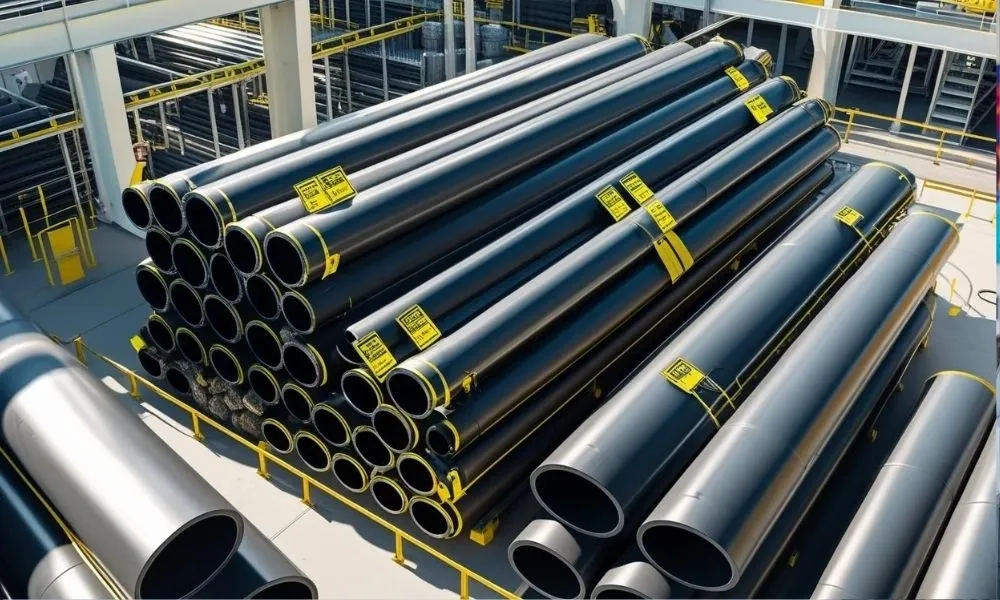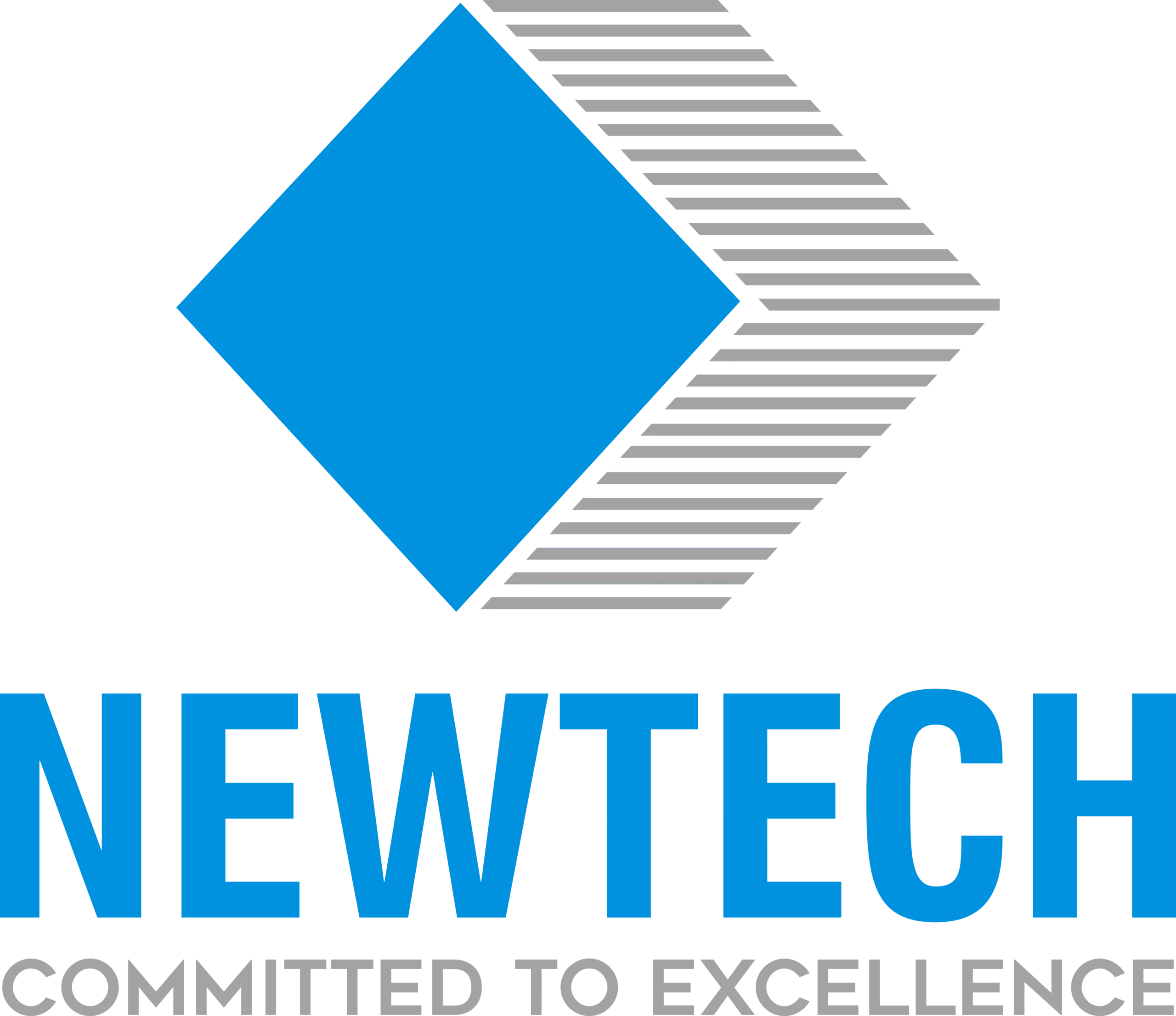Engineers increasingly choose HDPE pipes for industrial mega projects due to their superior durability, corrosion resistance, and long-term cost efficiency. NEWTECH-Pipes delivers cutting-edge HDPE solutions across Pakistan, engineered for modern infrastructure demands.
Introduction to HDPE for Industrial
What Is HDPE?
High-Density Polyethylene (HDPE) is a thermoplastic polymer known for its strength, flexibility, and chemical resistance. In large-scale industrial operations, especially infrastructure projects, HDPE pipes have become the industry standard.
Market Shift Toward HDPE
Engineers are shifting toward HDPE due to its proven field performance, low maintenance requirements, and adaptability to harsh environments. It is widely used in pipelines for water, gas, sewage, and chemicals.
Why Engineers Trust HDPE in Mega Projects
Superior Strength and Durability
HDPE pipes are engineered to withstand immense pressure, harsh climate conditions, and chemically aggressive environments. This makes them ideal for massive construction projects like power plants, dams, and water treatment systems.
Flexibility and Easy Installation
Their lightweight and flexibility allow for quicker and safer installations, reducing project delays and labor costs. HDPE can even be installed via trenchless technology, avoiding surface disruption.
Leak-Free Joints
One of the standout features is the heat-fusion joining method, which creates a monolithic pipe system that eliminates leakage, a major concern in traditional metal piping.
Key Applications in Industrial Infrastructure
Common Sectors Where HDPE Excels:
- Sector Application Oil & Gas Transportation of fuels, crude oil, and gas
- Water Supply Municipal and industrial water distribution
- Sewage & Waste Management Underground wastewater pipelines
- Chemical Industries Safe transport of corrosive and reactive agents
Mining Slurry and tailings pipelines
Technical Benefits of HDPE Pipes
Resistance Properties
- Property HDPE Performance
- Chemical Resistance Excellent against acids, alkalis, and salts
- UV Resistance Highly UV stabilized for outdoor installations
- Abrasion Resistance Outperforms PVC and steel in tough environments
- Corrosion-Free Zero chance of rust or internal scaling
Environmental Impact
HDPE is 100% recyclable and eco-friendly. Its long lifespan reduces material turnover, contributing to sustainable development goals (SDGs) in Pakistan.
NEWTECH-Pipes’ Commitment to Quality
NEWTECH-Pipes proudly adheres to ISO 9001:2015 standards in manufacturing HDPE pipes tailored for the most demanding environments. Our R&D-driven approach ensures durability, innovation, and cost-efficiency in every solution we offer.
Why Choose NEWTECH-Pipes?
- Locally manufactured with international standards
- Wide size range and pressure class availability
- Technical support for engineers and project managers
- Serving across Pakistan’s industrial, commercial, and municipal sectors
Comparison Table: HDPE vs Other Pipe Types
Pipe Type |
Durability |
Installation |
Corrosion Resistance |
Life Span |
|---|---|---|---|---|
| HDPE | High | Easy | Excellent | 50+ years |
| PVC | Medium | Moderate | Good | 30–40 years |
| Steel | Very High | Difficult | Poor | 20–30 years |
Pros and Cons of HDPE Pipes
Pros:
- High chemical and environmental resistance
- Lightweight and easy to transport
- Cost-effective over long term
- Flexible and impact-resistant
- Welded joints eliminate leakage
Cons:
- Higher upfront material cost compared to PVC
- Requires specialized tools for fusion welding
- May deform under extreme heat if not installed properly
Frequently Asked Questions (FAQs)
Why are HDPE pipes preferred in mega projects?
HDPE pipes offer superior durability, leak-free joints, and resistance to harsh environments, making them ideal for large-scale applications.
Are HDPE pipes better than steel pipes?
For most water and gas transport projects, HDPE outperforms steel in corrosion resistance and installation ease.
What is the lifespan of HDPE pipes?
HDPE pipes can last over 50 years with proper installation and minimal maintenance.
Can HDPE pipes handle chemicals?
Yes, HDPE is highly resistant to acids, alkalis, and chemical agents.
Is HDPE environmentally friendly?
Absolutely. HDPE is recyclable and has a low carbon footprint compared to other materials.
Where are HDPE pipes used in Pakistan?
From urban water supply systems to industrial wastewater management, HDPE serves multiple sectors nationwide.
Do HDPE pipes leak?
Not under normal conditions. The heat-fusion joints used in HDPE systems are leak-proof.
Are HDPE pipes cost-effective?
While initial costs may be higher, long-term savings on maintenance and replacements make HDPE a smart investment.
What diameters are available from NEWTECH-Pipes?
NEWTECH offers a wide range of diameters to meet varied project needs across Pakistan.
Are HDPE pipes pressure rated?
Yes. They come in multiple pressure ratings (PN classes) suitable for different operational demands.


